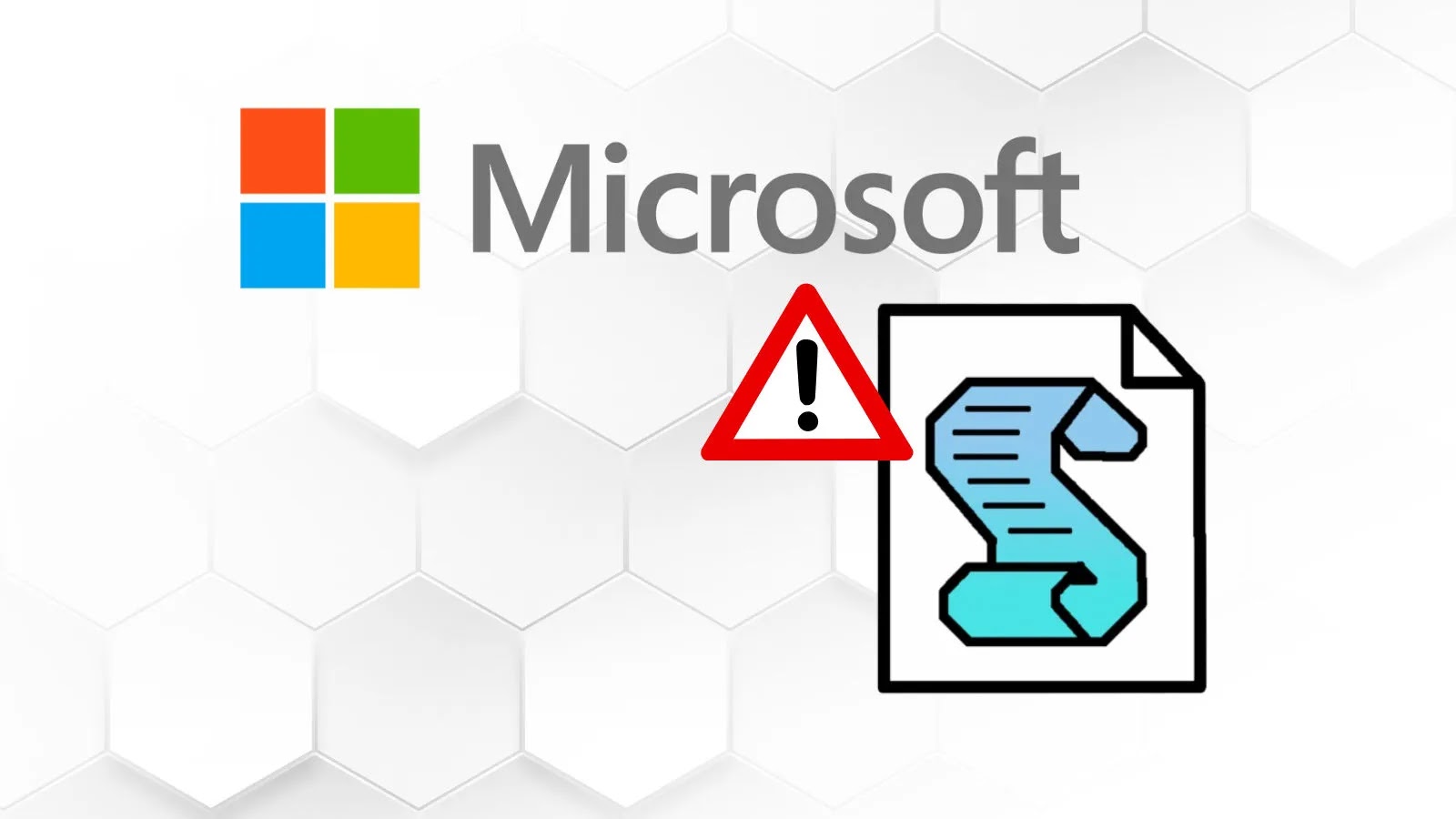
Microsoft To Depreciate VBScript In Windows Warns Developers To Adapt Their Projects
Microsoft Sunsets VBScript: A Call to Action for Developers
The landscape of enterprise technology is in constant flux, and few announcements ripple through the development community quite like a significant language deprecation. Microsoft has officially unveiled a multi-phase strategy to phase out VBScript in Windows, signaling a critical transition for developers, particularly those deeply entrenched in Visual Basic for Applications (VBA) environments. This strategic shift, initially detailed in May 2024, necessitates a proactive approach from development teams to ensure the continued compatibility and security of their projects.
For decades, VBScript has been a staple for automation, scripting, and web development within Microsoft ecosystems. Its eventual removal underscores a broader industry trend towards more modern, secure, and cross-platform scripting solutions. Ignoring this warning could lead to significant compatibility issues and potential security vulnerabilities down the line. Therefore, understanding the implications and preparing for this transition is paramount.
Understanding VBScript Deprecation: The Phased Approach
Microsoft’s decision to deprecate VBScript is not an abrupt cessation but rather a carefully orchestrated, multi-phase rollout. This deliberate approach provides developers with a window to adapt their existing codebases and migrate to supported alternatives. While the precise timeline for each phase will be communicated by Microsoft, the overarching message is clear: the clock is ticking for VBScript.
The move aligns with Microsoft’s ongoing efforts to streamline its technologies and enhance the security posture of its operating systems. Legacy components, while historically useful, can often become attack vectors if not meticulously maintained or if more secure alternatives become available. As such, this deprecation isn’t just about technological evolution; it’s also a strategic security enhancement for the Windows platform.
The Impact on VBA and Legacy Applications
The deprecation of VBScript will particularly resonate with developers managing applications heavily reliant on Visual Basic for Applications (VBA). While VBA itself is a distinct language, its close historical ties to VBScript in certain contexts, especially for automating tasks within Microsoft Office applications or older Active Server Pages (ASP) environments, means that many legacy systems might find themselves in a precarious position.
Developers need to meticulously audit their existing applications to identify any dependencies on VBScript. This includes scripts embedded in HTML pages for client-side functionality, scripts used for system administration, or custom components within enterprise applications that leverage VBScript for specific tasks. The process of identification is the crucial first step toward a successful migration.
Remediation Actions: Charting the Path Forward
Proactive remediation is key to navigating the VBScript deprecation smoothly. Developers and IT professionals should consider the following actions:
- Code Audit and Inventory: Conduct a comprehensive audit of all applications, scripts, and systems to identify any and all instances of VBScript usage. Document these instances thoroughly, noting their purpose and dependencies.
- Prioritize Migration: Categorize identified VBScript components by criticality and complexity. High-priority, business-critical applications should be addressed first to minimize disruption.
- Adopt Modern Scripting Languages: Microsoft strongly recommends migrating VBScript applications to modern alternatives. The primary recommended replacements include:
- PowerShell: For system administration, automation, and backend scripting. PowerShell offers robust capabilities and is deeply integrated with Windows.
- JavaScript/TypeScript: For web development (client-side and server-side with Node.js) and many modern application scenarios.
- C#: For robust application development, particularly where performance and tight integration with the .NET framework are required.
- Utilize Compatibility Tools: Explore any migration or compatibility tools Microsoft may release to assist with the transition. While direct conversion might not always be feasible, these tools can help identify VBScript code and suggest alternatives.
- Developer Training and Upskilling: Invest in training for development teams to ensure they are proficient in the recommended alternative languages. This will facilitate a smoother transition and empower teams to build more future-proof solutions.
- Phased Rollout and Testing: Implement migrated solutions in a phased manner, thoroughly testing each component to ensure functionality, performance, and security before full deployment.
Security Implications of Legacy Code
Beyond compatibility, the deprecation of VBScript also has significant security implications. Running outdated or unsupported scripting languages can expose systems to various vulnerabilities. When a language is no longer actively maintained or patched by its vendor, any newly discovered security flaws will likely remain unaddressed, creating fertile ground for attackers.
For instance, historical vulnerabilities concerning scripting engines (while not specific to VBScript alone, but illustrative of the risks) like those sometimes associated with Internet Explorer’s handling of scripting languages, demonstrate the potential for exploitation. While no specific CVEs directly linked to the current VBScript deprecation exist as a vulnerability in itself, the continued use of an unsupported language increases the attack surface for future, as-yet-undiscovered exploits. Proactively migrating away from VBScript is a crucial step in hardening your systems against potential threats.
Conclusion: Paving the Way for a Modern Windows Environment
Microsoft’s decision to depreciate VBScript in Windows is a significant step towards a more secure and modern operating environment. While it presents a challenge for developers with legacy systems, it also offers a compelling opportunity to refactor applications, adopt contemporary scripting languages, and enhance overall system security. The call to action is clear: developers must now adapt their projects to ensure future compatibility and resilience. By embracing modern alternatives like PowerShell, JavaScript, and C#, organizations can future-proof their applications and align with Microsoft’s evolving technological vision.





